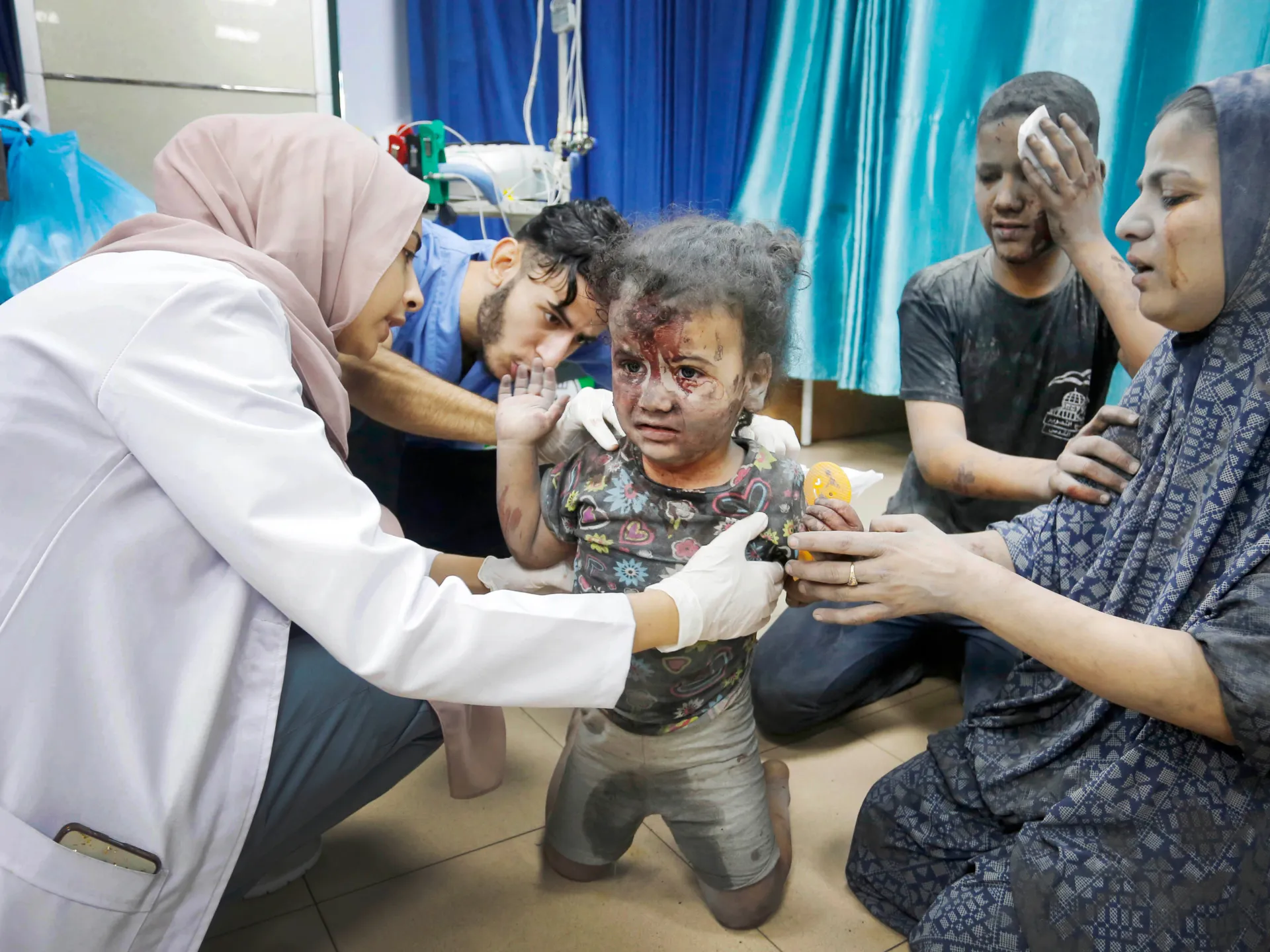BRUSSELS – Gaza hospitals have been reduced to practising “mediaeval medicine” amid dire conditions, according to Dr Khaled Dawas, a British surgeon who recently returned from the bombarded Palestinian territory.
In an interview, Dr Dawas, the head of gastrointestinal surgery at University College London Hospitals, described the situation as reminiscent of Europe 300 to 400 years ago. “It’s absolutely true to describe it as mediaeval medicine,” he said. “It is what you would hear about or read about what would be happening in Europe maybe 300, 400 years ago.”
Dr Dawas returned at the end of April from a two-week stint assisting overstretched Palestinian hospital surgeons, his second such mission following a visit in January. He was in Brussels to share his experiences with European Union officials.
He painted a bleak picture of the conditions in Gaza, with medical staff operating with virtually no supplies, intermittent power, and patients lying on the floor. “By April they were seeing this constant, constant volume of dying and dead bodies coming into the hospitals and any human wouldn’t be able to tolerate it,” he said. “They carry on working, but you can see the effect of that. They’re all extremely burdened by what they’re doing.”
The 54-year-old surgeon, an Arabic-speaker with Palestinian parents, noted that many wounded or ill people in Gaza avoid hospitals, fearing it “means pretty much a death sentence” due to wound infections and poor conditions.
Dr Dawas expressed feelings of guilt about leaving Gaza to return to his regular work in Britain, but he remains committed to going back. “I do hope that when I go back next time, that it’ll be when the ceasefire is in place. Because watching it unfold when you’re there is unbearable,” he said. “It becomes more unbearable when you leave, actually, when you think back on what you’ve seen and what you’ve heard. And you wonder how people, any human being, can survive this for so long.”
The surgeon’s testimony highlights the severe humanitarian crisis in Gaza, calling attention to the urgent need for medical supplies and a lasting ceasefire.
